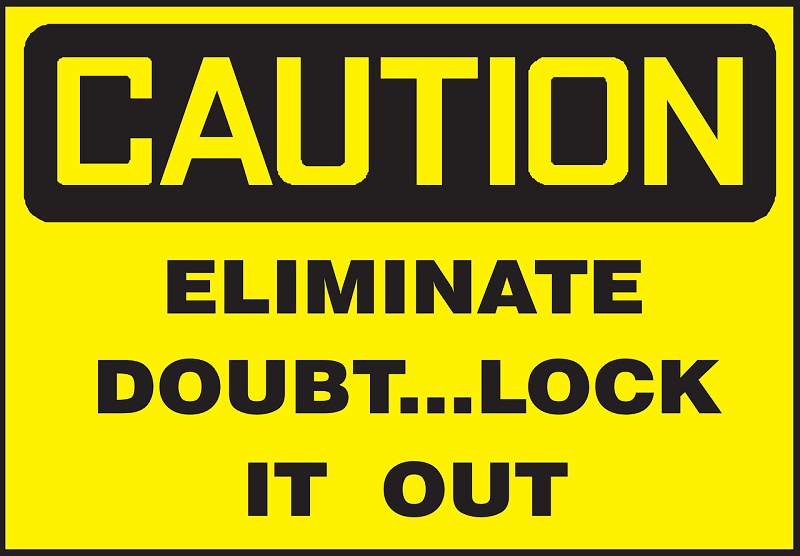What is Mental Toughness?
A health article about Mental Toughness from Your Health Online the A to Z directory of dealing with Health Problems & nutritional Self Care Strategies

Mental toughness is an incredibly valuable trait that usually separates the great from the mediocre.
It's the ability to handle stress and pressure, stay motivated and focused, and overcome obstacles.
It's what allows people to keep pushing forward even when things get tough.
In this guide, we're going to look at what it is, why it's so important, and by the end of this guide, you'll be equipped with the tools you need to be mentally strong, even during the toughest times.
Understanding Mental Toughness

What exactly is mental toughness? Is it only for ultra-endurance athletes or those in the army? Nope. Anyone can benefit from this toughness.
Why?
Because mental toughness is resilience in the face of adversity.
It's the ability to bounce back when things go wrong. It's having the strength to keep going when things get really hard.
What Makes Someone Mentally Tough?
This is not something that one is born with. Rather, it's developed over time and through specific efforts. Here are some key characteristics that define someone who possesses it:
● Resilience.
Resilient individuals bounce back from failures or adversity quickly. They
don't let setbacks discourage them but rather use them as motivation to keep
moving forward. When a mentally tough person fails, they pick themselves up
again and get right back at it.
● Perseverance.
Mentally tough individuals possess high levels of determination and
persistence. They do not give up easily. When circumstances get difficult, they
try even harder. Those who are mentally tough have a "never say die"
attitude and a desire to continue going forward.
● Grit.
Grit means that you are determined to absorb "punishment" and not
stop. Think of an American football player who gets hit but keeps going for
more yards. They have grit. In the same way, mentally tough people can absorb a
lot of difficulty without slowing down.
● Emotional Control.
These individuals can effectively regulate their emotions. They don't let their feelings dictate their actions and they’re able to stay calm and composed under pressure. When things don't go their way, they don't fly off the handle. They are in control.
The Benefits of Being Mentally Tough

We've touched on this, but there are some serious benefits to being strong in your mind.
Benefits that will follow you throughout your entire life and help you succeed where others might fail.
Some of the specific benefits include:
Success in Personal and Professional Life
Those who are mentally tough usually see success both in their personal and professional lives. Why? Because they don't give up until they get what they want.
They are determined to achieve their goals, no matter how difficult they may be. This translates to success in their relationships, careers, and other areas of life.
Strong Leadership Skills
Mentally tough individuals make great leaders. They're resilient, confident, and able to handle pressure and setbacks effectively.
When others might crumble under pressure, mentally tough people rise to the occasion.
Others look to them for leadership, especially during crises.
Improved Mental Health
Having a strong mindset can also benefit your mental health. Mentally tough individuals are better equipped to deal with stress, anxiety, and other challenges that life may throw at them.
They're more likely to bounce back from difficult situations. This resilience can help reduce the risk of mental health issues such as depression and anxiety.
Stronger Relationships
Want to develop better, stronger relationships with others? Seek to improve your mental toughness.
When you're mentally tough, you stick with people, even when there's a strain on a relationship.
You're able to communicate effectively, set boundaries, and handle conflicts in a healthy way.
Increased Productivity
Mentally tough individuals are known for their ability to focus and stay motivated. They don't let distractions or setbacks steer them off track.
As a result, they're able to accomplish tasks efficiently and effectively. Simply put, they get stuff done. They always keep plowing ahead.
Better Decision-Making Skills
Being mentally tough also means having strong critical thinking skills. When you're mentally tough, you can weigh the pros and cons.
You can analyze situations objectively and make decisions without being swayed by emotions.
This really improves your problem-solving skills and helps you make better decisions.
The Foundations of Mental Toughness

Now that we're clear on mental toughness, let's discuss its foundations.
Mental toughness is not something you can achieve overnight. It takes time and effort to develop. So, what are the foundations of mental toughness?
Developing Self-Awareness
The first step to becoming mentally tough is developing self-awareness. This means understanding your thoughts, emotions, and behaviors.
It also involves recognizing your strengths, weaknesses, and triggers.
Self-awareness also involves identifying your limiting beliefs. Limiting beliefs are those ideas that hold you back and keep you from moving forward when things get tough.
For example, if you believe you're not good enough, it may stop you from taking risks and trying new things.
By identifying your limiting beliefs, you can work on changing them and becoming mentally stronger.
Another aspect of self-awareness is understanding your values and goals. When you know what's important to you, it becomes easier to stay focused and motivated. You can also use your values as a guide when making decisions.
So how can you grow in self-awareness? Some simple ways include:
● Practice
prayer. Take a few minutes each day to sit in silence and observe your
thoughts and emotions. Learn to pray through your emotions as a way of taking
control of them.
● Keep
a journal. Writing down your thoughts and feelings can help you better
understand yourself. It can serve as a form of "self-therapy" in
which you get everything out on the page and then work through those things in
writing.
● Seek
feedback from others. Ask for honest feedback from people you trust. They
may see things about you that you haven't noticed before.
● Engage
in self-reflection. Regularly set aside time to reflect on your actions.
Ask yourself what you did well, what you could improve on, and how you can
continue to grow.
● Challenge your beliefs. When faced with a difficult situation or negative thought, question the validity of your beliefs. Are they based on fact or just fear? Challenging them can help break down limiting beliefs and build mental toughness.
Building Emotional Intelligence
Another foundation of mental toughness is emotional intelligence. Emotional intelligence involves being able to control your reactions under pressure.
When you're emotionally intelligent, you can recognize and manage your stress. Rather than responding negatively, you can stay calm and make rational decisions.
Emotional intelligence also involves being empathetic towards others. This means understanding and considering other people's feelings, perspectives, and needs.
By practicing empathy, you can build better relationships and handle conflicts more effectively.
Emotional intelligence allows you to handle difficult situations with more composure and empathy. This can be particularly helpful in high-stress environments, whether at work or in personal relationships.
How do you grow in emotional intelligence?
Here are a few strategies:
● Practice self-awareness.
Pay attention to your emotions and reactions in different
situations. This can help you understand how you respond under stress and
identify triggers that may cause negative reactions.
● Develop empathy.
Take the time to listen to others and try to understand their
perspectives. Put yourself in their shoes and consider how they may be feeling.
● Communicate clearly.
Effective communication involves not just speaking but also
listening actively, being assertive, and expressing your thoughts and feelings
clearly.
● Control your emotions.
Being able to regulate your emotions helps you stay calm
under pressure. Practice deep breathing or other relaxation techniques when
feeling overwhelmed.
● Learn from mistakes.
Nobody is perfect, and part of emotional intelligence is being able to learn from mistakes and use them as opportunities for growth.
Having a Growth Mindset
Your mindset influences how mentally tough you are. You need to understand the difference between a growth mindset and a fixed mindset.
A growth mindset helps you see challenges as opportunities for learning and growth.
You meet difficulties with relish, knowing that they are pushing you to become the best version of yourself. You don't run from hardship. Rather, when it comes, you press into it.
A fixed mindset, on the other hand, limits your potential because you believe your abilities are set in stone. You withdraw from tough situations, afraid you won't be able to handle them.
It's important to cultivate a growth mindset to reach your full potential. Here are some tips for developing a growth mindset:
● Embrace challenges.
Instead of avoiding difficult tasks, see them as an opportunity
to learn and grow. Take on new challenges and don't be afraid to fail.
● Persist in the face of setbacks.
When you hit a roadblock, don't give up. Keep
pushing through and look for alternative solutions.
● View effort as a positive thing.
Effort is not something to be ashamed of, but
rather an important part of growth. Do hard things that require a lot of
effort. The more effort you expend, the more you'll grow in mental toughness.
● Learn from feedback.
Feedback, whether positive or negative, can help you grow
and improve. Instead of taking it personally, see it as an opportunity to
learn. Welcome feedback, even if it makes you feel a bit uncomfortable.
● Find inspiration in the success of others.
Instead of comparing yourself to others, use their success as motivation and inspiration for your growth and development.
Building Resilience
The final foundation of mental toughness is resilience. Resilience equals bounce back.
It's the ability to go through difficult circumstances and come out stronger on the other side.
Resilient people do not let setbacks or failures define them but rather use them as opportunities to learn and grow.
The opposite of resilience is fragility. Fragile people crumble under pressure and can't handle difficult situations.
Developing resilience takes practice and effort, but it can greatly benefit your mental toughness.
Here are some tips for building resilience:
● Develop problem-solving skills.
Instead of becoming overwhelmed by a difficult situation, try to break it down into smaller parts and find solutions for each part. This will help you feel more in control and able to tackle the problem.
● Practice self-care.
Taking care of yourself physically, mentally, and emotionally is crucial for building resilience. Make sure to get enough sleep, eat well, engage in activities that bring you joy or relaxation, and connect with supportive friends and family.
● Cultivate a positive mindset.
Resilient people tend to have a positive outlook on life, even in the face of challenges. Practice gratitude and focus on the things that you can control rather than dwelling on what you can't.
● Seek support when needed.
It's important to have a strong support system during difficult times. Don't be afraid to reach out to friends, family, or a therapist for help and guidance.
The Role of Failure in
Mental Toughness

We've already touched on how mentally tough people handle failure, but it's worth going into more detail because of how important it is.
Failure as a Teacher
If you're going to be mentally tough, you need to redefine failure.
Instead of seeing failure as a horrible, negative thing, look at failure in terms of feedback. Failure is a teacher.
It can teach you:
● What
not to do next time
● Areas
of improvement
● New
strategies or approaches to try
● Your
true strengths and weaknesses
● The
importance of perseverance
● How to build resilience through experience
Most people try to avoid failure at all costs, but this is a mistake. When you constantly try to avoid failure, you never take risks or step out. You always hold back, fearing that you might misstep.
Instead, embrace failure as a natural part of the learning and growth process. Mentally tough people see failure as a stepping stone to success.
When he was struggling to create a working light bulb, Thomas Edison famously said, "I have not failed. I've just found 10,000 ways that won't work."
That's the attitude of a mentally tough person. Failure is not the end, but simply a detour on the path to success.
The Importance of Perseverance
Mentally tough people also persevere in the face of failure. They don't give up. They don't back down. Rather, they keep trying to move forward.
When you persevere through failure, you learn that you're strong enough to handle the challenges that come your way.
You also learn how to adapt and bounce back from setbacks. This builds your mental toughness, making it easier to face future obstacles and failures with confidence.
There are many, many examples of great people persevering through difficulty on the path to success. For example:
● J.K.
Rowling, who wrote the Harry Potter series, was rejected by 12
publishing houses before she finally was able to get the book published.
● Steve
Jobs, a man who changed society itself with his invention of the iPhone, was
famously fired by Apple in 1985.
● Walt
Disney was fired from the Kansas City Star newspaper after the editor said that
he "lacked imagination and had no good ideas."
● Ultra-wealthy investor Warren Buffett made a number of poor investments early in his career, leading to significant money loss.
You get the point. Almost every successful person has had to persevere through failure to finally reach great success.
If you want to succeed in life and your profession, you need to have the same kind of perseverance.
How to Practically Deal With Failure
So when you find yourself confronted by failure, how should you respond? What are some practical steps you can take to move forward and persevere?
● Start by acknowledging your emotions.
It's natural to feel disappointed, upset,
or even angry when faced with failure. Instead of suppressing these emotions,
acknowledge them and allow yourself to feel them fully. This will help you
process the experience and move on.
● Next, try to identify what went wrong and why.
Take an honest look at your
actions, decisions, and circumstances that may have led to the failure. This
will help you learn from the experience and avoid making similar mistakes in
the future.
● Then, reframe the situation.
Focus on what you learned or gained from the
failure. Instead of dwelling on the negative aspects, shift your perspective.
See it as a valuable learning opportunity. This will help you build resilience
and improve your abilities for next time.
● Another important step is to take action.
Don't let failure paralyze you - instead,
use it as motivation to keep moving forward. Develop a plan of action to bounce
back and work towards success. This will help you feel more in control and
empowered.
● Finally, seek support from others.
Don't be afraid to talk about your failure with trusted friends or mentors. They can offer valuable insights, advice, and encouragement to help you move forward.
Remember, everyone experiences failure at some point. You're not alone.
Cultivating Daily Habits for Mental Toughness

As we've noted before, mental toughness is not something you're born with.
Rather, you develop it, day after day, in the trenches of everyday life.
Mental toughness is built over time and through regular practice.
There are several key habits you should employ if you want to get stronger mentally. We've touched on some of these but let's go deeper.
Build a Routine
A routine, when done well, is a powerful tool to help you build mental toughness. People who have daily routines are more disciplined and better equipped to deal with unexpected challenges.
What's more, routines give you momentum and allow you to continue doing certain tasks even when things get tough.
For example, say that you've developed the routine of reading for 15 minutes every morning before the day gets started.
The more you do this routine, the easier it will be for you to do the reading. Even when you don't sleep well or have a rough time the day before, you're still going to want to read because it's part of your morning routine.
We could say a lot about developing routines, but we'll focus on this: consistency. The more consistent you are with your routine, the easier it will become.
You're not spending willpower on each routine. You're just doing it. So start developing a routine each day.
There are no set rules about what you should include in your routine. For example, you might start your day with a quick jog outside. Or maybe you end your day with some stretching and prayer.
Whatever it is, make sure the activities are meaningful to you and they provide a sense of accomplishment.Exercise and Physical Challenges
There is often a connection between your levels of fitness and your mental strength. While not always the case, many people who are physically fit have a level of mental toughness as well.
This doesn't mean you need to become an Olympic athlete, but regular exercise can certainly help build your mental resilience.
So how can you incorporate exercise into your life? Maybe make it a part of your daily routine. Or possibly join an exercise group, like a running group.
In addition to regular physical activity, it's important to challenge yourself physically in different ways.
This could be trying out a new sport or activity, pushing yourself harder during workouts, or signing up for a challenging fitness event like a marathon or obstacle course race.
By putting yourself through physical challenges, you're training your mind to push through discomfort and overcome obstacles.
You can also incorporate smaller challenges throughout your day to help you grow in mental toughness. For example, you might challenge yourself to take the stairs instead of the elevator or do a certain number of push-ups every hour.
These challenges may seem small, but they can build up over time and help strengthen your mental resilience.
Prayer
Prayer is another daily habit you can implement to help you grow in mental toughness.
Prayer allows you to connect to a power greater than yourself and receive mental strength. You can give your burdens to God and trust Him to take care of you.
In a sense, you receive strength by admitting your weakness. In other words, you acknowledge your need for God and He gives you the mental toughness to keep going.
If you're not sure where to start with prayer, consider starting with the Our Father prayer from the Bible:
Our Father who is in heaven,
Hallowed be your name.
Your kingdom come,
Your will be done
On earth as it is in heaven.
Give us this day our daily bread,
And forgive us our trespasses,
As we forgive those who trespass against us.
And lead us not into temptation,
But deliver us from evil.
Amen.
You can also create your personalized prayer that speaks to you and your struggles. The important thing is to make prayer a consistent part of your daily routine, just like physical exercise, to help strengthen your mental resilience.
Journaling
We've already touched on the power of journaling but it's worth discussing in a little more detail. Journaling is an excellent daily habit to improve your mental toughness.
Why?
Because it allows you to get your thoughts out of your head and onto paper. Once you have them on paper, you can sort through them and gain clarity.
This can help you process your emotions and identify any negative patterns or triggers that may be affecting your mental toughness.
Journaling also allows you to reflect on your progress, celebrate your wins, and track areas where you still need improvement. It's a powerful tool for self-discovery and growth.
You can journal in whatever way works best for you - whether it's writing long entries, jotting down bullet points, or even drawing out your thoughts.
The important thing is to make it a daily habit and use it as a tool for strengthening your mental toughness.
Make Them a Habit
It may seem obvious but it's important to note that the above mental toughness strategies only work if you do them regularly.
If you only pray or journal once a month when things get really bad, you won't develop much mental resilience.
Because of this, you'll struggle to get through the tough situation unscathed.
But if you do these exercises regularly, you will strengthen your mind like a muscle.
Think of these habits like lifting weights. The more you do them, the stronger you become.
You'll be better equipped to handle any challenges that come your way and bounce back quicker when things don't go as planned.
As the saying goes, practice makes perfect.
Overcoming Negative Self-Talk

One of the great enemies of resilience is negative self-talk. Negative self-talk sabotages you. It makes you vulnerable during difficult situations.
It's like a bully that constantly puts you down and diminishes your self-worth.
So how do you overcome negative self-talk?
Identifying Negative Thought Patterns
The starting place for overcoming negative self-talk is becoming aware of the negative thought patterns that you experience.
There are a number of negative self-talk patterns, including:
● Catastrophizing.
Expecting the worst case in every situation.
● Black
and white thinking. Seeing things as either all good or all bad.
● Personalization.
Taking responsibility for things that are not your fault.
● Overgeneralizing.
Making broad assumptions based on one negative experience.
● Labeling.
Assigning negative labels to yourself or others based on one mistake.
● Disqualifying
the positive. Ignoring or discounting positive experiences.
● Mind
reading. Assuming you know what others are thinking without evidence.
● Emotional reasoning. Believing your emotions reflect reality.
There are more potential negative self-talk patterns you may slip into but this should give you a general idea.
It's essential that you be aware of your negative thought patterns. You need to know which ones you commonly experience and the nuances of how you experience them.
Challenging Your Negative Thoughts
Once you've identified your negative thoughts, you need to start challenging them. You need to say, "Hey, wait a minute. Is this really true?"
Because there's a really good chance that the negative thoughts and fears that loom so large in your mind are not true.
In other words, you need to resist the temptation to spiral into negative thought patterns.
Here is a process for challenging your negative thoughts:
1. Write
down the thoughts you're having.
2. Look
at the evidence that supports and contradicts that thought.
3. Ask
yourself if it's possible to view the situation in a different way.
4. Consider
how you would advise a friend who was experiencing the same thought or
situation.
5. Come up with an alternative, more realistic thought to replace the negative one.
Reframe Your Negative Thoughts
It's not enough to challenge your negative thoughts. Instead, you need to reframe them.
Reframing means looking at a situation from a different perspective and viewing it in a more positive light.
This can be tricky because our brains are wired to focus on the negative.
But with practice, you can begin to shift your thoughts towards more positive interpretations.
Here are some tips for reframing your negative thoughts:
● Use
positive language when talking to yourself.
● Identify
potential silver linings or opportunities in a difficult situation.
● Practice
gratitude by focusing on the good things in your life.
● Surround yourself with positive people and influences.
For example, say you don't reach a particular goal. You might think, I never meet any of my goals! Is that thought true? No, it's not. It's time to reframe this thought.
Instead of focusing on how you don't meet your goals, you may think, I didn't meet this goal, but that doesn't mean I won't meet future ones. I can use this experience to learn and do better next time.
Remember, it takes practice to reframe your thoughts, so be patient with yourself and keep at it. So don't give up!
Keep challenging and reframing those negative thoughts to live a more positive life.
The Power of Affirmations
Positive affirmations can be tremendously helpful when it comes to building your mental toughness.
Affirmations are positive statements that you repeat to yourself, either out loud or in your head.
They can help shift your focus from negative thoughts to more positive ones.
Some examples of affirmations include:
● I
am strong and resilient.
● I
am capable of overcoming any challenge.
● I have the power to control my thoughts and reactions.
Repeating these types of statements regularly can help rewire your brain to think more positively.
It may feel silly at first, but with time and consistency, affirmations can have a powerful impact on your mindset.

Self Care strategies
It’s important to remember that it takes time - maybe a lot of time - to grow in mental toughness.
It doesn’t happen overnight. It takes persistence and perseverance. You need to keep working on it. But the rewards are worth it.
Mental toughness is not something that comes naturally to everyone.
It is a skill that can be developed and strengthened over time, much like building physical strength through exercise.
So start exercising your mental muscles. Persevere.
Learn from failure. Build daily habits.
Defeat your negative thought patterns.
Vitamin & Nutrient Associations
Even when we try to eat well, we're disadvantaged. The nutritional
content of most food has been compromised over the years, not only by
deficient soils and modern production, transportation, storage and
processing methods, but also by the enormous amounts of chemical and
artificial substances added to promote growth, storage life, taste and
appearance.
It's for this reason that more and more medical authorities are
advocating the use of vitamin and mineral supplements. However, finding
them in the right combination can be both confusing and costly.
The nutrition products I am going to recommend you make use of knowledge
gained from the botanical world's 6,000 year history. They incorporated
health building nutritional herbs with the best modern technology to
help our bodies cleanse and detoxify so that the cells - the tiniest
living units - can be as fully nourished as possible.
This allows the cells to grow,
repair and to perform their functions with the best possible efficiency
so that we feel and look better and are more able to prevent and fight
disease. Once the body begins to clear itself of toxins it can more
efficiently absorb nutrition.
Further reading through our articles on health issues will give
you a body of information that will help you decide what options you
have to deal with the underlying causes of your problem through giving
your body the nutrition products that will assist you body to heal from
the inside out.
You can visit our health food products page here: Herbalife Health Nutrition Supplements and learn more about our core nutrition program, the Cellular Nutrition Advanced Program and also check out these targeted products, Florafiber to replace your healthy flora and Aloe Vera Juice to help cleanse your system.
Also using NouriFusion Skin Essentials will clearly help provide you with excellent skincare support for your ‘outer nutrition’.
We wish you well in your search for solutions to this problem and your movement towards better health in all areas.
Below here are examples of Health Success
Results other people have had with using a self care strategy for
dealing with this condition:
We would be very interested to hear your result stories with your problem if you are using some of our nutrition products. To send us your story just fill out the form below.
Share *YOUR* remedy & health success story!
We are on a world-wide mission to source and tell our readers about as many as possible of the natural remedies & self care strategies available, so please help us to grow and improve our health information on this subject.
If you have a proven home remedy or natural treatment or have a great Health Success story, we would love to share it with our readers.
And as a special "Thank You" for your contribution, we will give you our special edition "Health Success Report"!
(When you submit this article you agree to the ***GENERAL RELEASE below this form)
See below here what stories & resources have been contributed on this subject:
Click below to see contributions from other visitors to this page...
What is Emotional Intelligence, and Why Does it Matter?
We all have that one friend we know we can’t do without.
Every time we speak with them, it’s that person who makes us feel better—that friend who can …


*** GENERAL RELEASE AND ASSIGNMENT
For good and valuable consideration, the receipt
and legal sufficiency of which is hereby acknowledged, I ("I", "me",
"my") hereby agree as follows:
1) I hereby grant to Warren Tattersall, his successors, assignees and
licensees the unlimited right, but not the
obligation, to use any statements made by or attributed to me (my
"Statements") as well as my name, voice, and likeness, performance,
personal characteristics and other identifying information (jointly and
severally with the Statements and the photographs referenced in
Paragraph 2 below, my "Personal Characteristics") in and in connection
with the advertising, promotion, marketing and other exploitation of
Herbalife products or Warren Tattersall’s services in any and all
languages and media, now known or hereafter devised, throughout the
universe in perpetuity.
2) If I supply Warren Tattersall with photographs of myself on this date
or any date subsequent, I agree that Warren Tattersall may use such
photographs to the full extent provided above, I warrant and represent
that I am the person depicted in the photograph, I am the owner of the
photograph, I have the authority to grant the permission and rights
granted herein, and no one else’s permission is required to grant such
rights, and I understand that the copy of the photograph(s) I supply to
Warren Tattersall will not be returned.
3) I understand that Warren Tattersall is not obligated to use my
Personal Characteristics as permitted herein or, if commenced, to
continue with such use in any territory. I acknowledge and agree that
Warren Tattersall may make my Personal Characteristics available to
Warren Tattersall’s independent distributors to use as permitted above.
4) In undertaking the act of submitting my words and images through
www.TheHealthSuccessSite.com I understand that I am agreeing the terms
and conditions of this agreement
I have read this entire General Release and Assignment and fully
understand his contents. I likewise understand that this document shall
remain in full force and effect unless/until I request that it be
terminated, and that any such request must be made in a signed writing.
By signing below, I hereby acknowledge and agree to the
foregoing.
I understand that in submitting my material for publication I am granting the rights to reproduce this material on the internet or in other form and I have read the conditions above
BACK TO “Your Health Online”
the A to Z directory of dealing with Health Problems & Self Care Strategies for natural remedies to your health issues.
Terms of Use | Privacy Policy | Disclaimer | Site Map
====================================================
SITE DISCLAIMER: Do these products “cure” anything? Of course
not… but it stands to reason that if you cleanse your body and feed it
the finest nutrition available, giving it everything it needs in
balance, on a daily basis, that your body will do what nature intended,
and give you the best possible chance to fend off sickness and disease.
This Mental Toughness information is not presented
by a medical practitioner and is for educational and informational
purposes only. The Mental Toughness content is not
intended to be a substitute for professional medical advice, diagnosis,
or treatment. Always seek the advice of your physician or other
qualified health provider with any Mental Toughness
questions you may have regarding a medical condition. Never disregard
professional medical advice or delay in seeking it because of something
you have read.
The Mental Toughness resources on this site are not intended to be a substitute for professional advice. While all attempts have been made to verify KEYWORD information provided in this publication, neither the author nor the publisher assumes any responsibility for errors, omissions or contrary interpretation of the web site Mental Toughness subject matter herein.
The site Mental Toughness contents are solely the opinion of the authors and should not be considered as a form of advice, direction and/or recommendation of any kind. If expert advice or counseling is needed, services of a competent professional should be sought. The author and the Publisher assume no responsibility or liability and specifically disclaim any warranty, express or implied for any KEYWORD products or services mentioned, or any techniques or Mental Toughness practices described.
The purchaser or reader of this Mental Toughness publication assumes responsibility for the use of these materials and information. Neither the author nor the Publisher assumes any responsibility or liability whatsoever on the behalf of any purchaser or reader of these Mental Toughness nutritional supplements materials. There is no guarantee of validity of accuracy. Any perceived slight of specific people or organizations is unintentional.
This website and its
creators are not responsible for the content of any sites linked to.
Since natural and/or dietary supplements are not FDA approved they must
be accompanied by a two-part disclaimer on the product label: that the
statement has not been evaluated by FDA and that the product is not
intended to "diagnose, treat, cure or prevent any disease."
====================================================
the A to Z directory of dealing with Health Problems & Self Care Strategies for natural remedies to your health issues.

Subscribe to get your weekly "Health Success Magazine" with a new complete & comprehensive Health Report in every edition!

to “Your Health Success”
our weekly F’R’E’E’ Newsletter
If you would like a free no-obligation private consultation or to contact Warren Tattersall for more information, please click here >> Contact Us



